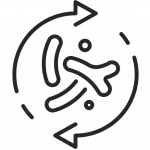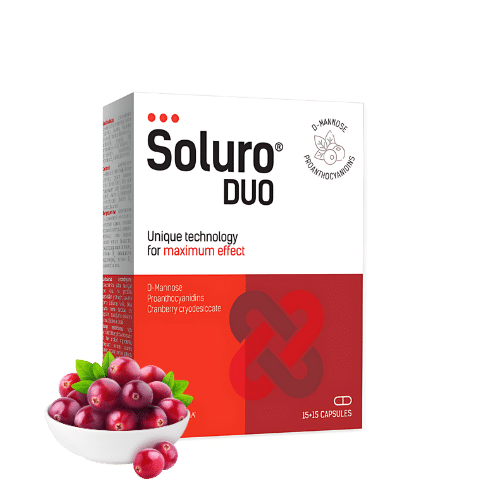Cold weather and urinary tract infections: the season of cystitis

As the temperature drops, our bodies become more vulnerable to the cold. One of the most common companions during the winter months is cystitis – a troublesome urinary tract infection often associated with chilly weather. Cystitis occurs when bacteria enter the bladder through the urethra, causing an inflammatory reaction. While bacteria are the primary cause of cystitis, the weakening of the immune system due to cold can create favorable conditions for their proliferation and the worsening of the infection. Hypothermia, or a drop in body temperature, is not only uncomfortable but can also affect the immune system’s ability to resist infections.
The impact of hypothermia on the immune system and urinary tract infections
A drop in body temperature can cause vasoconstriction, which in turn reduces blood flow to vital organs – including the urinary system. As a result, the supply of nutrients and oxygen to the urinary tissues decreases, affecting the function of immune cells and creating a favorable environment for bacterial proliferation.
The risk of urinary tract infections, particularly cystitis, associated with cold weather is significantly higher in women. This is because the anatomical peculiarities of women’s urinary tracts provide bacteria with a favorable path for faster movement into the bladder. This anatomical peculiarity, combined with the immune system’s slowdown promoted by cold weather, increases the likelihood of developing cystitis.
Symptoms of cystitis
- Cystitis is a condition that requires prompt attention as its symptoms can quickly become very uncomfortable. Typical signs that may indicate cystitis include:
- Frequent urination. One of the first and most common symptoms is the need to urinate more often than usual, often in very small amounts.
- Pain or burning sensation during urination. An unpleasant or painful sensation during urination is a clear sign that something is not right.
- Cloudy or foul-smelling urine. Changes in the clarity and odor of urine may indicate inflammation.
- Pain in the lower abdomen or back. In cases of cystitis, there may be pain in the lower abdomen or lower back, the intensity of which can vary.
- General malaise or fever. In more severe cases, cystitis can also cause fever and general fatigue.
If one or more of the above symptoms appear, it is important to seek medical advice for confirmation of the diagnosis and to receive appropriate treatment. As preventive measures, it is recommended to consume enough fluids, keep the body warm, and observe personal hygiene.
Treatment of cystitis with home remedies
The goal of treating cystitis is to alleviate symptoms, destroy the bacteria causing the inflammation, and prevent future infections. Prevention plays a key role in personal hygiene and behavioral habits that help block bacteria’s access to the urinary tract.
Below are some of the most important treatment methods and preventive measures:
- Consume plenty of fluids. Increasing the intake of water or herbal teas helps flush bacteria from the bladder.
- Stay warm. Keeping the lower body warm helps improve circulation and supports the immune system.
- Take pain relievers if necessary. Over-the-counter pain relievers can be used to relieve pain and discomfort.
- Treatment of cystitis with antibiotics. In cases of more severe infections, doctors may prescribe antibiotics.
Natural remedies, such as cranberries and D-mannose, offer additional benefits to traditional medical treatment methods. Cranberries are well-known for their diuretic effect, which promotes the elimination of fluids, thereby helping to reduce bladder irritation and inflammation. In addition, this berry has a strong antibacterial effect resulting from unique proanthocyanidins. These compounds prevent the adhesion of pathogenic bacteria, particularly E. coli, to the bladder walls, which is one of the main causes of cystitis. By consuming cranberries, whether raw, as juice, or as a supplement, individuals may experience a decrease in the frequency and severity of cystitis.
D-mannose, on the other hand, is a special sugar that does not significantly affect blood sugar levels, making it a safe option even for diabetics. This sugar is particularly effective in preventing and treating bladder and urinary tract infections. The main action of D-mannose is to bind to bacteria, thereby preventing them from adhering to the bladder walls. The unattached bacteria are then excreted with the urine, reducing the risk of infection. In addition to strengthening the immune system, D-mannose helps maintain a healthy and balanced microflora in the urogenital system, which is important for preventing infections.
The combination of these two natural remedies can provide a synergistic effect, improving overall intimate area health and offering effective protection against urinary tract infections.
From the Lotos Pharma product range, you can find Soluro Duo, which supports the treatment of cystitis. It is a capsule product that contains D-mannose and cranberry extract, including proanthocyanidins. Proanthocyanidins enhance the effect of D-mannose by preventing bacteria from adhering to the bladder walls and reducing the risk of urinary tract infections. They contribute to bacteriostatic effects and help disrupt bacterial biofilm.
There are several ways to prevent and treat cystitis, but the most important is early recognition of the disease and prompt action. Seeking medical advice when the first symptoms appear ensures quicker relief and helps prevent the development of more serious complications.










